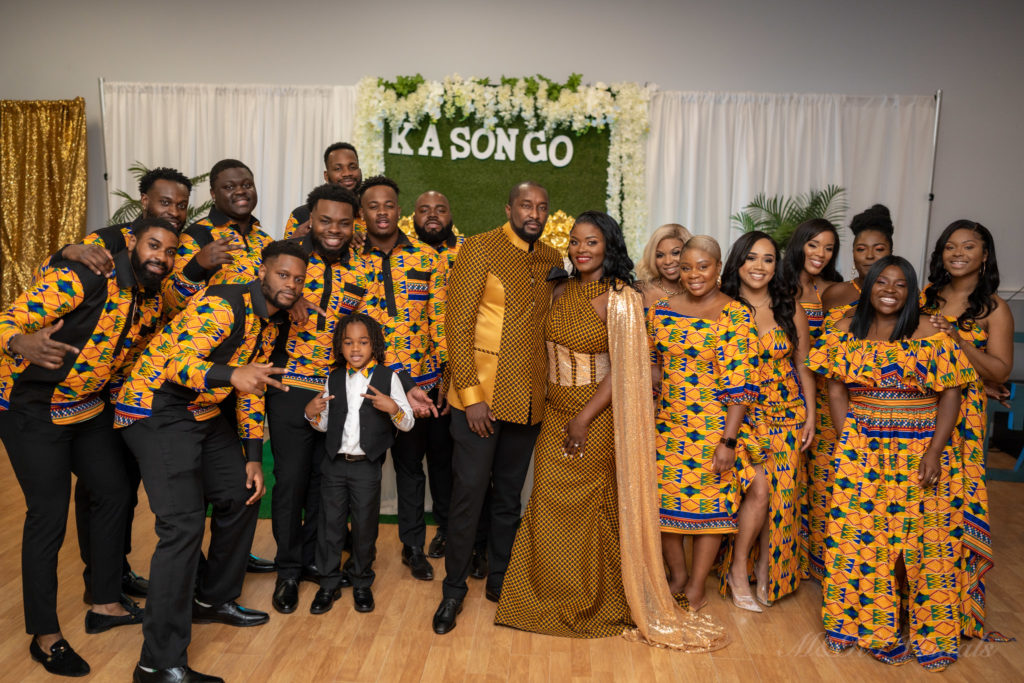Wedding planning for an African couple is typically not limited to what is shown on TV. There are cultural norms and practices that should be accounted for early on. Last week we shared on the 5 preliminary things to do once you become engaged. Today we’re sharing on the first 5 things to do for the African bride/groom-to-be.
1. Consider your cultural traditions for engagements
In most African countries, engagements are not official until there is an engagement ceremony (example: an introduction or knocking, also known as “presentation de famille” in French) where the groom’s family formally asks the bride’s family for her hand in marriage. Should you and your families choose to partake, do make sure you plan that too. Consult the parents on both sides of the family to select the day to hold it and other logistics and do your research to uphold the standards of your culture.
2. Get a vision
Along with your fiancé(e), agree on a vision for your wedding day. Discuss everything from the size of the wedding to the theme to the wedding date to your desired ambiance. Also discuss the budget. Ask yourselves questions like whether you prefer traditional food from your country or any food that the venue can provide. The goal is not to finalize all the details for your wedding day but to come to an agreement on how you want your day to be. (Note: wedding planning is great grounds to exercise compromise, which is much needed in marriage).
3. Obtain family input
In most African cultures, weddings are a family affair. However, if you open the door for everyone’s input, it could lead to confusion and frustration. Determine those in your families whose input and advice matters the most to you (example: parents, a knowledgeable cousin), and share your vision with these individuals. Listen to their advice because they will have great tips and ideas for you. Ultimately it is your wedding day, but since your family (especially parents) are also emotionally invested in your wedding day, a good way to show them that you also care is to consider their input.
4. Start working on your guest list
When it comes to African weddings, it is important to start working on the guest list and guest count as soon as possible. That is because you will need to have a good approximate count before you book your hall. Speak to both sides of the family about the guest list and discuss how many guests they can invite. Make sure they understand and address any concerns about the guest list ahead of time so that there are no surprises after the hall has been booked.
5. Book your hall
Wedding venues book fast and large wedding halls do not come easily. Once you determine the time frame for your wedding date, know how much of the budget you want to allocate towards the venue, and also have a good enough approximate guest count do not delay in booking your hall.
Bonus: Hire a planner
African weddings most often have larger guest lists, more customs to take into account, and, consequently, more components to manage. On your wedding day you should not have to worry about details like whether the jollof rice will arrive on time. Hire an experienced wedding planner and one who understand the various customs of African weddings to help you carry that load from start to finish.
If you need a wedding planner, we would love to speak to you more about how we can serve you. Learn more about our wedding planning services by visiting our Weddings page.


